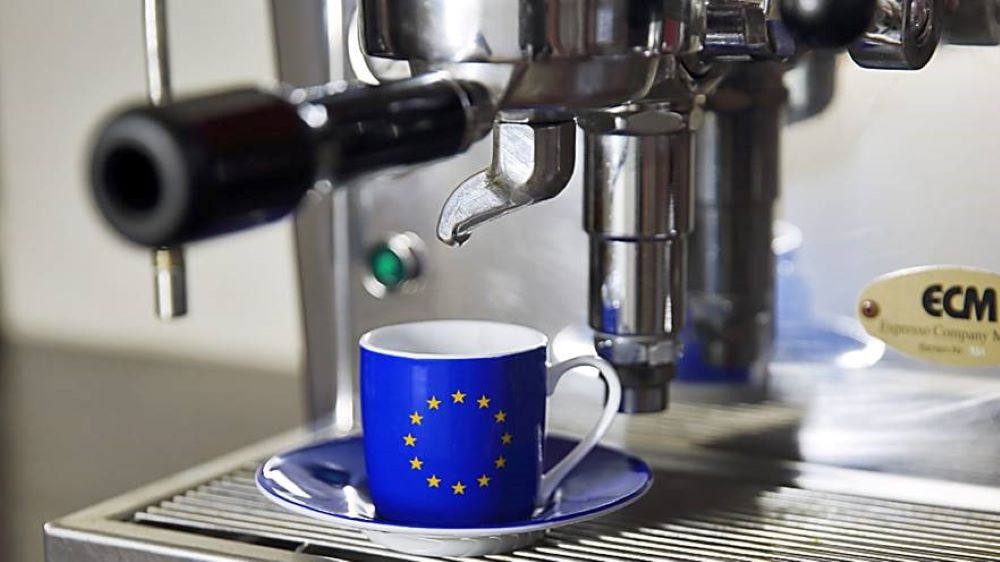If we google the phrase, which we have heard at least a hundred times, we will get a clear and precise list of what those values are. But that doesn’t necessarily tell us whose values those are…

Voja Žanetić
This is how we’ll start:
“The Union is based on the values of respect for human dignity, freedom, democracy, equality, the rule of law and respect for human rights, including the rights of members of minorities. These values are common to member states, in a society where pluralism, non-discrimination, tolerance, justice, solidarity and equality between women and men prevail.”
(‘Treaty amending and completing the Treaty of Establishment of the European Union, aka Lisbon Treaty, Article 1a; 2007)
* * * * *
The author of this article will honestly admit that, while preparing for this editorial on European values – the topic of this issue of “Vicinity” – he googled what European values were all about. The reason for this probably lies in the multi-year process of integration of this vicinity into the European Union: in the pile of everything that’s ever been said on the topic, it was too often mentioned that something is or is not in accordance with European values. And in these many cases, European values occupied the same place that, say, God’s Will has in the speech of religious people. A sealed, “all-powerful box” of unknown content, out of which reward or punishment comes out from time to time, providing the basis for the subject of encouragement or deterrence to know what they have done was good or bad. And God will know exactly what that is. Or the European Commission, depending on the case.
Lay people in the matter of European values – who have become numb over time from the frequent use of the mere phrase – could take this term for granted. When you don’t spit on the street, that’s a European value. Or is the waltz a European value, especially in Vienna and especially after the New Year… Those a little less enthusiastic about the European Union could proclaim colonialism and imperialism as a much more authentic “European value”; reaching for not-so-ancient history and not going into what is written in the documents from the not-so-recent 2007.
Be that as it may, if we re-read what is written at the beginning of this text – or we Google a phrase that we have heard at least a hundred times, but still remain unconvinced – we will get a clear and precise list of what these values are. But that doesn’t necessarily tell us whose values those are… and we could say a few words on that.
* * * * *
Well, here is (this) example, no need to come up with a better one, if there even is one.
In order for water to reach people, the best way to do it is – a water supply system. The respect for the need for safe distribution of clean and healthy water represents a value, materialized in pipes and fountains. But if the existence of water supply is more common in cities than in villages, this does not mean that we are talking about urban values. They could first be declared universally human, and only at the end, or perhaps even never, particularly urban.
Regional, cultural, populational, or any other arrogance allows itself the sometimes accidental and sometimes deliberate mistake of attributing values that could be everyone’s to only some. Realistically, the absence of arrogance could also be added to the list of values we are thinking about, and who knows what effects that would have on the European integration of this vicinity.
Speakinga little more seriously, though, if anything should ever be changed regarding the phrase “European values”, it is the possessive adjective at the beginning. They are not only European: in a world connected more than ever, they have the right to be values towards which every individual and every society strives – whether it is about those geographically located in Europe (even in the EU) and those who are left without that historical or geographical luck. This way it would be less googled and harder to forget which values are not only European, and on which the European Union has united. Hardly anyone would mind, and you would know exactly what is meant. Values, period.
Just in case, we’ll repeat them one more time. It won’t bother you, on the contrary:
* * * * *
“The Union is based on the values of respect for human dignity, freedom, democracy, equality, the rule of law and respect for human rights, including the rights of members of minorities. These values are common to member states, in a society where pluralism, non-discrimination, tolerance, justice, solidarity and equality between women and men prevail.”



Leave A Comment